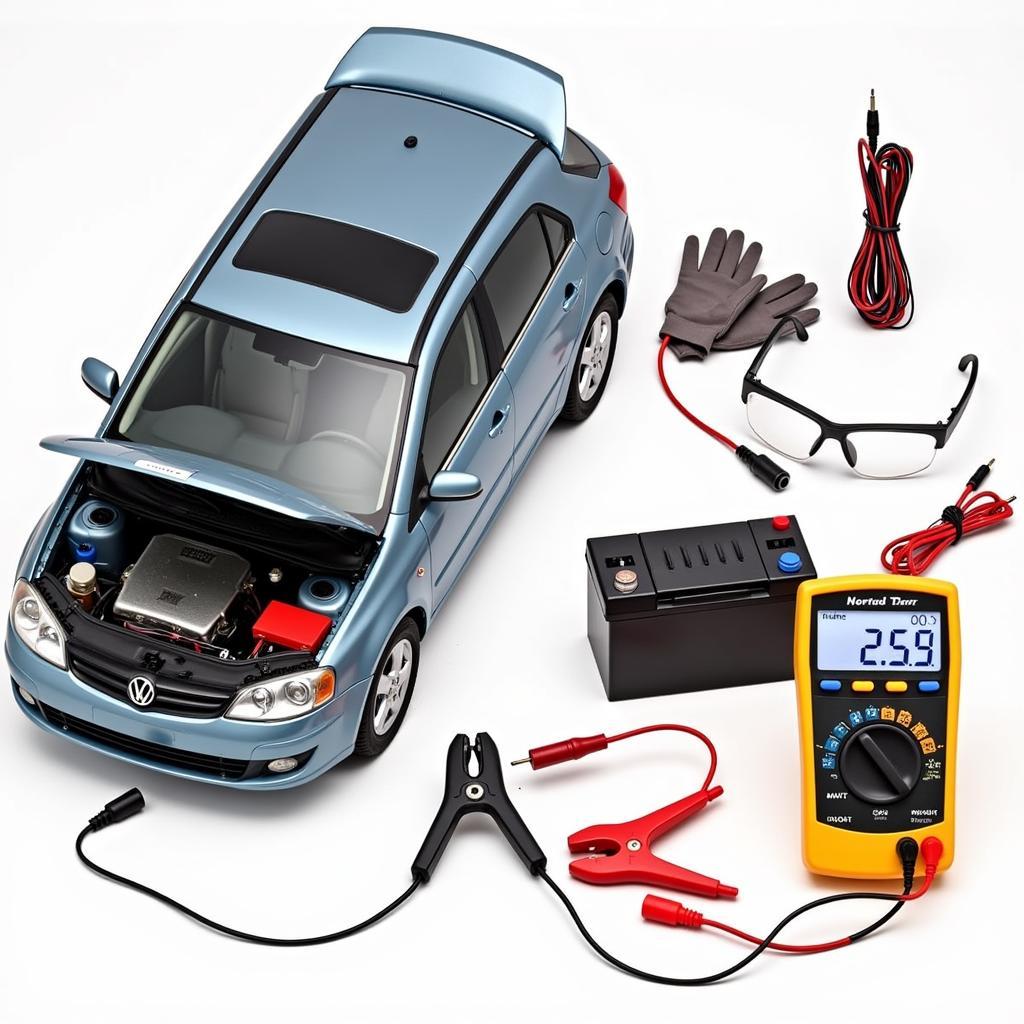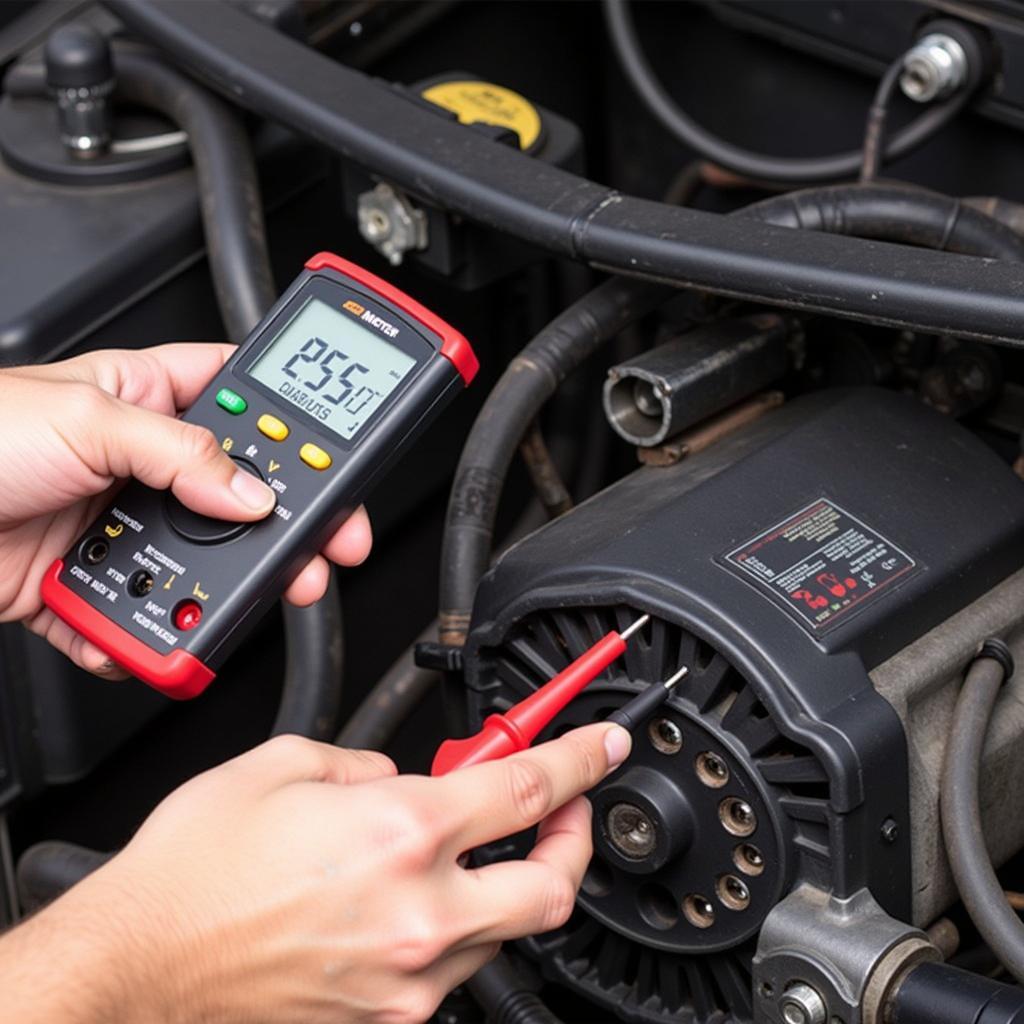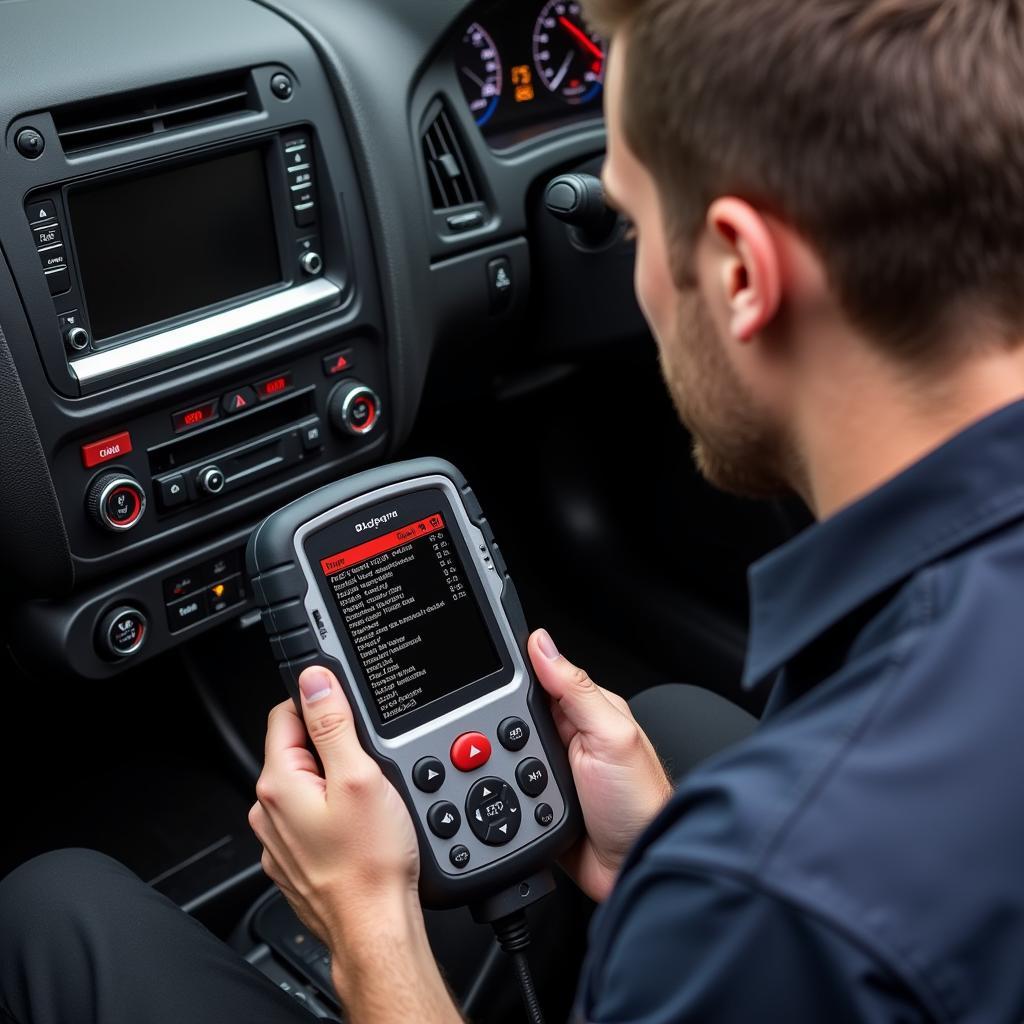A dead car battery is a common culprit when your car refuses to start. However, “what could be the problem if my car won’t start” has many potential answers, ranging from simple fixes to more complex mechanical issues. This article will delve into the various reasons your car might not be cooperating and offer some troubleshooting tips.
Similar to car won t start problems, a weak or dead battery is often the first suspect. But before you jump to conclusions, let’s explore all possibilities. A car’s starting system is a complex interplay of various components. A problem with any one of these can lead to a no-start situation.
Common Reasons Your Car Won’t Start
- Dead Battery: This is the most frequent reason. Symptoms include dimming headlights, a clicking sound when you turn the key, and no response from the engine.
- Faulty Starter: The starter motor is responsible for cranking the engine. A bad starter might produce a grinding noise or no sound at all.
- Ignition System Problems: This encompasses issues with the ignition switch, coil, distributor, or spark plugs. A faulty ignition system can prevent the fuel from igniting.
- Fuel System Issues: A clogged fuel filter, a failing fuel pump, or a faulty fuel injector can prevent fuel from reaching the engine.
- Alternator Problems: While a bad alternator won’t prevent your car from starting initially, it will eventually drain the battery and leave you stranded.
 Car Won’t Start: Dead Car Battery Symptoms and Solutions
Car Won’t Start: Dead Car Battery Symptoms and Solutions
Troubleshooting a No-Start Condition
- Check the Battery: Use a multimeter to test the battery voltage. A reading below 12.6 volts usually indicates a weak battery. Try jump-starting the car. If it starts, your battery likely needs replacing.
- Inspect the Starter: Listen for unusual noises when turning the key. A grinding or clicking sound can indicate a starter problem.
- Examine the Ignition System: Check for damaged or corroded spark plug wires. If possible, test the spark plugs.
- Check the Fuel System: Listen for the fuel pump when you turn the key to the “on” position. If you don’t hear it, the fuel pump might be faulty. Also, check the fuel gauge to ensure you have enough fuel.
- Consider the Alternator: If your car starts but dies shortly after, the alternator might not be charging the battery.
What Could Be the Problem If My Car Won’t Start After a Jump?
Even after a successful jump start, your car might still refuse to start later. This could point to a deeper issue, like a failing alternator. If the alternator isn’t charging the battery, the jump start will only provide temporary power.
Just like the situation described in my car won’t start what could be the problem, sometimes the issue lies within the electrical system. This could range from a loose connection to a more serious wiring problem.
 Checking Car Alternator with Multimeter: Troubleshooting Charging System
Checking Car Alternator with Multimeter: Troubleshooting Charging System
Seeking Professional Help
If you’ve tried the basic troubleshooting steps and your car still won’t start, it’s time to seek professional help. A qualified mechanic can diagnose the problem accurately and perform the necessary repairs.
“A common mistake car owners make is ignoring warning signs,” says John Smith, ASE Certified Master Technician. “Addressing small issues early can prevent them from becoming major problems down the road.”
Conclusion
Figuring out why your car won’t start can be challenging. By understanding the various components involved and following the troubleshooting steps outlined above, you can narrow down the possibilities and potentially fix the problem yourself. However, “what could be the problem if my car won’t start” isn’t always a simple question. Sometimes, professional assistance is necessary. Contact AutoTipPro at +1 (641) 206-8880 or visit our office at 500 N St Mary’s St, San Antonio, TX 78205, United States for expert diagnosis and repair.
 Mechanic Diagnosing Car Starting Problem Using Diagnostic Tools
Mechanic Diagnosing Car Starting Problem Using Diagnostic Tools
“Regular maintenance is key to preventing no-start situations,” adds Jane Doe, Automotive Engineer. “Simple things like battery checks and routine inspections can save you a lot of headaches in the long run.”
FAQ
- How long does a car battery typically last? Car batteries generally last between 3 and 5 years.
- Can a bad alternator prevent a car from starting? While a bad alternator won’t prevent an initial start, it will eventually drain the battery and prevent future starts.
- What does a clicking sound when trying to start the car indicate? A clicking sound usually indicates a dead or weak battery or a faulty starter.
- How can I test my car battery? Use a multimeter to test the battery voltage.
- What should I do if my car won’t start after a jump start? This could indicate a failing alternator or another underlying issue. Consult a mechanic.
- How often should I have my car serviced? Follow the manufacturer’s recommended maintenance schedule.
- Can extreme temperatures affect car starting? Yes, both extreme heat and cold can negatively impact battery performance and starting.






Leave a Reply